Support for balancing work and childcare
Support systems
At RIKEN, we have various support systems in place to facilitate a research environment that is friendly to everyone.
* Support systems available may be different depending on employment type, etc.
Support programs related to pregnancy, childbirth and childcare
* Available support programs and procedures: Permanent Employee, Fixed-term Employee, Indefinite-term Employee, Special Appointment Employee, Special Postdoctoral Researchers, Jun jimu kikan Administrative Employee
[List of support programs available at different periods]
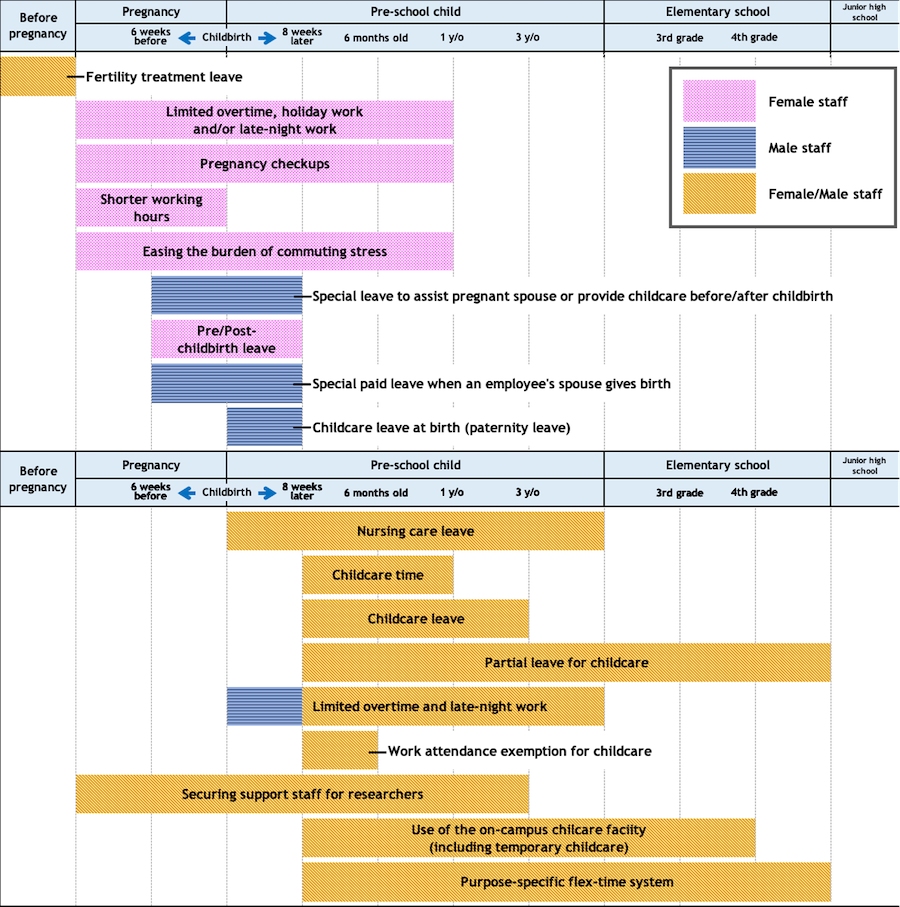
[Outline of support programs]
![]() Scroll left / right
Scroll left / right
| Period | Programs | Summary | Salary |
|---|---|---|---|
| Before pregnancy |
Fertility treatment leave | Female employees may take up to five days of leave within a fiscal year when it is considered adequate not to work due to medical attention she requires for fertility treatment, etc. (or 10 days per fiscal year if treatment includes in-vitro fertilization or micro fertilization). | Paid |
| During pregnancy |
Limited overtime, holiday work and / or late-night work | You will not be ordered to work overtime, on weekends or holidays, or late at night for the period you applied for during pregnancy. | - |
| Pregnancy checkups | You may take time off work to have checkups and obtain health guidance, as stipulated by the Maternal and Child Health Law. |
Paid | |
| Shorter working hours | During pregnancy, female employees who commute to work by train or bus may reduce their working hours by up to one hour, both at the start and end of the working day. | Paid | |
| Measures to ease the burden of commuting for pregnant employees | A pregnant female employee may request, on the advice of her doctor, special measures such as commuting flexibility (late arrival / early leave, etc.), shortened working hours, extended rest periods, limitations on the nature of her work, and days off from work. | Paid | |
| 6 weeks before and 8 weeks after childbirth | Pre-childbirth leave | Female employees may have pre-childbirth leave of 6 weeks (or 14 weeks in the case of a multiple pregnancy). | Paid |
| Special paid leave to assist pregnant spouse or provide childcare for the child in the family during the six weeks before and eight weeks after childbirth | Male employees may take up to five days of paid leave to assist their pregnant spouse or provide childcare during the six weeks before and eight weeks after childbirth. | Paid | |
| Special paid leave when an employee's spouse gives birth | Male employees may take special paid leave for up to three days when their spouse gives birth. | Paid | |
| Post-childbirth leave | The law requires all female employees who gave birth to take post-childbirth leave, in principle. Eight weeks of “Post-childbirth" leave is given from the day after the date of birth. (However, if the employee wishes to return to work six weeks after childbirth, and the doctor, upon checking their physical condition, allows them to do so, they may return to work at that time.) | Paid | |
| Childcare leave at birth (paternity leave) | The program allows employees to take up to four weeks of leave within eight weeks after childbirth. Given that female employees who gave birth are required to take eight weeks of post-childbirth leave, this paid leave is mainly for men to use. Male employees may take up to four weeks of leave on two occasions within eight weeks after the child is born. If you are breaking the leave into two occasions, however, you need to provide the timelines for both occasions in advance at the beginning of the initial leave. | Paid | |
| Limited overtime and late-night work | You may ask for no overtime work or a limit on overtime and late-night work. |
- | |
| Nursing care leave | You may take up to five days of leave per fiscal year for your child's nursing, vaccinations, and medical checkups. (If you have two or more children who are not yet in elementary school, you can take up to 10 days off in a fiscal year).
From April 2021, half-day leave will be abolished and full-day or hourly leave will only be available. (Discretionary work system employees will only be able to take full days). |
Paid | |
| During childcare | Pregnancy checkups | You may take time off work to have checkups and obtain health guidance, as stipulated by the Maternal and Child Health Law. |
Paid |
| Measures to ease the burden of commuting for pregnant employees | A pregnant or postnatal female employee may request, on the advice of her doctor, special measures such as commuting flexibility (late arrival / early leave, etc.), shortened working hours, extended rest periods, limitations on the nature of her work, and days off from work. | Paid | |
| Limited overtime and late-night work | You may ask for no overtime work or a limit on overtime and late-night work. |
- | |
| Nursing care leave | You may take up to five days of leave per fiscal year for your child's nursing, vaccinations, and medical checkups. (If you have two or more children who are not yet in elementary school, you can take up to 10 days off in a fiscal year).
From April 2021, half-day leave will be abolished and full-day or hourly leave will only be available. (Discretionary work system employees will only be able to take full days). |
Paid | |
| Childcare time | Employees of RIKEN may take hourly leave for up to 30 minutes on two occasions each day before the child's first birthday. Discretionary work system employees are excluded. | Paid | |
| Work attendance exemption for childcare |
You may be exempted from commuting to work in the initial childcare period, based on the supplementary regulations for exemption from commuting to work. |
- | |
| Partial leave for childcare | Before your child reaches the beginning of junior high school, you may reduce work time by up to 2 hours a day (in units of 30 minutes). (Unable to use along with "Changes in work start and end times" program.) |
Unpaid | |
| Childcare leave (☆) | Eligible employees may take childcare leave until their child reaches age 3, based on the supplementary regulations for childcare leave. |
Unpaid | |
| Purpose-specific flex-time system | In accordance with the supplementary regulations on the purpose-specific flex-time system, you may (if eligible) apply for this system until your children reach the beginning of junior high school. Discretionary work system employees are excluded. |
- |
- ☆Starting April 1, 2022, employees who have been employed for less than one year are also able to use this program.
Employment insurance will pay eligible individuals childcare leave benefit for a certain period.
Support systems for research staff (researchers, engineers and technical staff) balancing work and childcare
- Subsidies to hire support staff for researchers who are pregnant and / or raising children
- RIKEN offers subsidies to help cover the cost of a support person (part-timer and temp staff) to assist a research staff member who is pregnant and/or caring for small children, so that the research staff member can continue to conduct research.
- Funding support for researchers returning to work / research from interruption
- RIKEN offers research funding to support researchers returning to work/research from interruption due to life events such as childrearing, and to maintain and further improve research and development outcomes.
Childcare Guidebook 2019
We publish a guidebook that gives useful information about the support programs related to pregnancy, childbirth and childcare.
The latest version of the guidebook is available in Japanese and English, and can be downloaded from a page on the internal website.
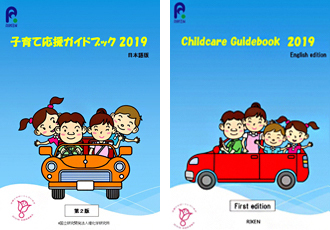 Cover of Childcare Guidebook 2019
Cover of Childcare Guidebook 2019Contents
- 1.RIKEN’s initiatives on gender equality and work-life balance
- 2.Support program offices
- 3.Private consultations
- 4.Support programs related to pregnancy, childbirth and childcare
- 5.Other support programs for childcare
- 6.Support for researchers to maintain a healthy work-life balance
- 7.Other support programs related to pregnancy, childbirth and childcare
In-house childcare facilities
In-house childcare facilities are available for RIKEN employees depending on the capacity of the facility. The facilities are established based on RIKEN policy that aims to eliminate the difficulty of balancing work and childrearing, and to facilitate a smooth return from maternity leave and/or childcare leave.
- RIKEN Kids Wako
- (Wako Campus in Wako City, Saitama)
Types of childcare: Regular and temporary childcare
Hours of service: 8:30 - 20:00
Eligibility: Children who are 57 days old to preschoolers with no serious medical concerns

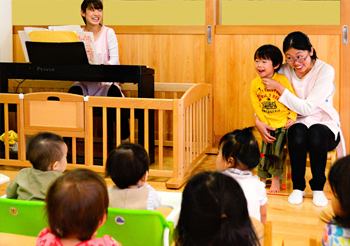
- RIKEN Kids Yokohama
- (Yokohama Campus in Yokohama City, Kanagawa)
Types of childcare: Regular and temporary childcare
Hours of service: 8:30 - 18:00 (extended hours: 8:00 - 8:30, 18:00 - 20:00)
Eligibility: Children who are 57 days old to preschoolers with no serious medical concerns
View detailed information about RIKEN Kids Yokohama
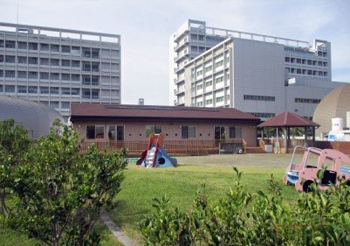
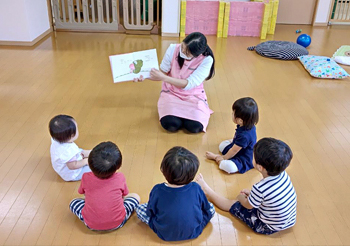
- PO-I Kids Kobe
- (Kobe Campus in Kobe City, Hyogo)
Types of childcare: Regular and temporary childcare
Hours of service: 8:15 - 20:00
Eligibility: Children who are 57 days old to preschoolers with no serious medical concerns
Closed: Saturdays, Sundays, national holidays, New Year holidays (December 29 - January 3) and RIKEN holidays
Eligibility:- Regular childcare
- 1.They are a parent or guardian and must be a RIKEN employee (includes prospective employees). Prospective employees must be referred by their research team to the Human Resources Section of the Kobe Administrative Division.
- 2.There are difficulties in using licensed childcare centers due to the employee’s working conditions or the child’s health condition.
- 3.Others who are deemed by the director of the Kobe Administrative Division to have a need for regular childcare.
- Temporary childcare
Children of the following persons may be allowed to use the childcare facility.- 1.Individuals who are affiliated with RIKEN and usually take care of their children at home or use other childcare facilities, but have an urgent need for temporary childcare
- 2.Visitors to the Kobe Branch who require temporary childcare while they attend a conference or symposium
- 3.Others who are deemed by the director of the Kobe Administrative Division to have a need for temporary childcare
Capacity:
- [Regular childcare] - 20 children
- [Temporary childcare] - 5 children
- [Regular childcare] Maximum of 3 years. However, if the number of children using the facility for regular childcare is less than 70% of total capacity, usage past 3 years will be accepted.
- [Temporary childcare] None
- [Regular childcare] From the first day of the month six months prior to the first day of the month before the desired date of enrollment.
- [Temporary childcare] Registration should be made two weeks prior to the day you desire to start using the temporary childcare service. Reservation should be made 3 work days prior.
 Scrollable left / right
Scrollable left / rightRegular Childcare Temporary / Extended Childcare 0 year old 61,000 yen / month 230 yen / 30 minutes 1 year old 59,000 yen / month 220 yen / 30 minutes 2 years old 57,000 yen / month 220 yen / 30 minutes 3 years old and older 42,000 yen / month 170 yen / 30 minutes Contact:kobe-kosei@riken.jp
- Regular childcare
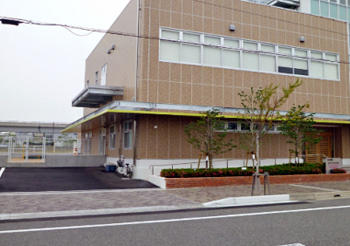
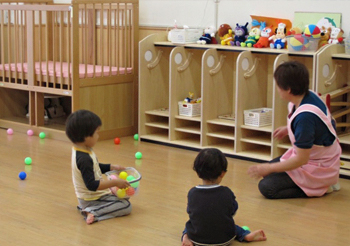
Private consultations
The consultation desk managed by the Human Resources Division offers private consultations for RIKEN employees who find it difficult to continue to work due to pregnancy, childbirth and/or childrearing.
The Diversity Promotion Committee
The Diversity Promotion Committee is established in order to actively promote diversity at RIKEN.
